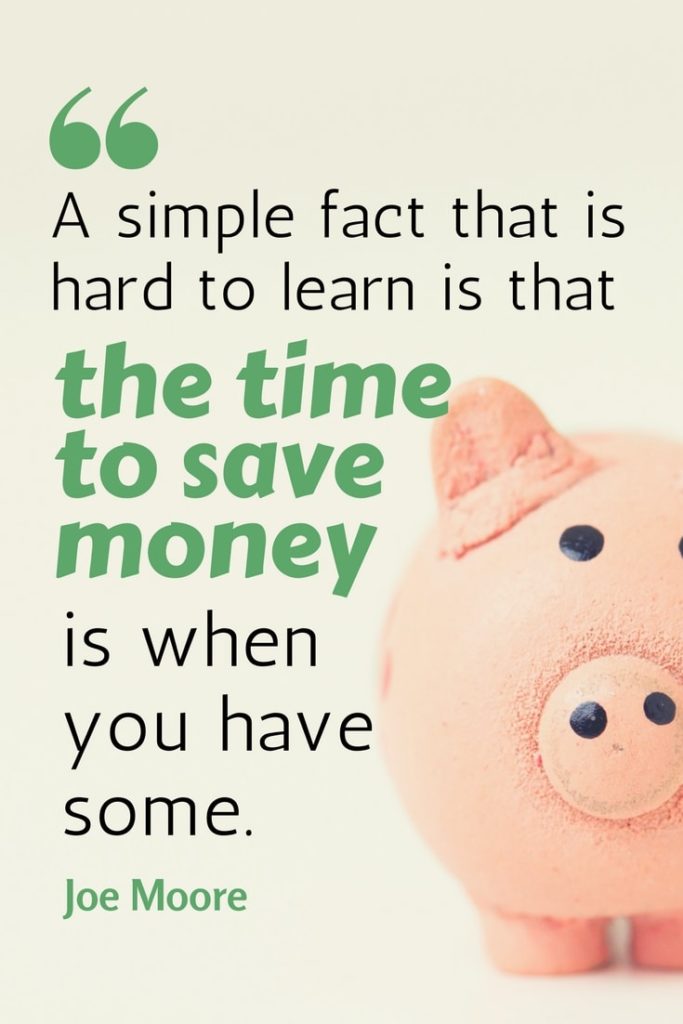It can take years of experience to develop good financial habits, but the benefits of being responsible with your spending are well worth any effort it takes to develop good practices.
When you have your finances under control, you can keep you and your family out of debt, you can maintain a strong credit score, and you can get the financing you need for large purchases such as a home or a car.
When people run into financial problems, it is usually the result of several bad decisions that pile up to create ongoing issues.
To protect your financial future, you need to be able to identify bad financial habits and understand the ways in which you can avoid making those types of mistakes on a regular basis.
It is okay to make financial mistakes. What is not acceptable is allowing those mistakes to turn into ongoing bad habits. In this article, we will feature 11 good financial habits you should built into your lifestyle.
11 Best Financial Habits for Success
1. Use Your Credit Card Responsibly
It is not a bad thing to have credit card accounts that you can use when you have emergency situations. But when you use those credit card accounts to develop spending habits that overwhelm your monthly income, then you are headed for trouble.
If you notice that your monthly credit card payments are starting to become more than your monthly income, then you need to break this bad financial habit quickly.
The solution to this type of problem is to use credit in a responsible manner. Never purchase something on a credit card that will take longer than three months to pay off.
If you are only making minimum payments on your credit cards each month, then you are heading down the road towards financial disaster. You need to understand your own finances and prevent yourself from making credit purchases that will create monthly payments that go on for years.
Another good approach is to create a savings account that you use specifically to make purchases that would normally make with a credit card.
For example, if it is finally time to replace the television, then it is much better to save up to buy a new television with cash than to utilize credit.
2. Use a Monthly Budget
Many people find themselves over-extended with their monthly bills because they have no idea how much they really need to spend each month to pay bills and meet expenses.
The best way to monitor your monthly spending is to utilize a monthly budget. You will find that most people who do not use a monthly budget are also the same people drowning in debt.
A budget can be something as simple as listing all of your bills and expenses on a piece of paper each month and then scheduling payments based on your monthly paychecks.
There are many computer programs available to help people create and maintain a successful monthly budget. Neglecting to use a monthly budget is a very bad financial habit to get into.
Using a monthly budget will also help you avoid lifestyle creep. Watch teh video below for a few lifestyle creep examples, and the 7 simple habits to avoid the temptation of this mindset.
3. Avoid Impulse Buying
People sometimes joke with each other about impulse buys they make when they go shopping, but impulse buying is a horrible financial habit to get into. Impulse buying is the act of purchasing products that you want, but do not necessarily need.
Most people do not track their impulse spending and the results can be hundreds of dollars being carelessly spent each month and only deepens the hole created by crippling debt.
To avoid impulse buying, you should plan each shopping trip and only buy what you need. If you need a little extra help in controlling your impulse spending, then only bring with you the cash you would need to make planned purchases and leave your credit cards, checkbook, and ATM card at home.
4. Track Your Monthly Expenses
Are you someone who stops off on the way to work and spends $6 on a coffee in the morning?
It seems harmless enough, but it is actually a very bad spending habit. That $6 coffee represents $30 per week in added expenses, which becomes $1,560 per year in money lost.
If you would just bring a coffee from home, you could save $1,560 per year and apply that money towards other bills.

It is easy to allow your expenses to get out of control, but it is just as easy to curb your spending and make sure that you are only buying the essentials.
To help in stop spending so much money, you should track all of your spending for one month to determine what you buy, what you spend, and then decide what you really need. Here are some free printable expense trackers you can use.
For example, you may see in your log that you are wasting money each week on that morning coffee and buying lunches at work.
With real numbers from your expense tracking, you can determine just how much money you are wasting. It is easier to develop good financial habits when you see how much damage the bad habits are doing in writing.
5. Paying Monthly Credit Card Bills on Time
Do you have a habit of making your credit card payments late each month? You probably figure that as long as the credit card companies get their money before the end of the month, then there is no harm done.
The truth is that you are doing several bad things to your finances when you do not make your credit card payments on time each month.
Every time you miss a credit card payment, the creditor adds a late fee to your payment and increases your interest rate. It is not uncommon for a late fee to run anywhere from $30 to $50 each month. That increased interest rate is also applied to the late fee, which causes you to lose even more money.
Late credit card payments also damage your credit score. One of the easiest ways to destroy your credit is to make a habit out of paying your bills late. Luckily, one of the easiest ways to fix your credit is to get into the habit of paying your bills on time.
6. Make Retirement Plans
Are you planning on retiring someday?
What have you done to prepare for those golden years when you will no longer be generating an income through your job?
If you have a retirement plan through your job that you are enrolled in, are you sure it will give you the income you need to retire comfortably?
The bad financial habit people get into is treating retirement like an afterthought. People set up their retirement account and start making contributions to it without even knowing if it is going to be enough.
Get into the good habit of talking about your retirement with a certified professional and make long-term plans that make sense.
If you want to learn how to set the right goals as part of your long-term planning, check out this post on SMART financial goals examples.
7. Create a Contingency Plan
During the course of a month, just about anything can happen that could suddenly put you in a financial bind.
Many people get into credit trouble because they are unprepared for financial challenges and rely on their credit cards to get them out of trouble. These are the sorts of bad financial habits that put people deep into debt and cause years of financial headaches.
The simple solution here is to start a savings account that is specifically set aside for emergencies. (This is just one of many “adulting” things you should do.)
This is different than the savings account we discussed earlier that is used to set aside money for larger purchases. That account is used in conjunction with careful planning and consideration for future needs.
The contingency savings account is an account that is there to take care of problems without using your credit cards. (One app that can help you save is the Digit savings app.)
8. Plan for the Future
Did you just get married this year? Congratulations! Have you made any financial plans to help take care of the needs of your family in the coming years?
Many people make changes to their lives without any type of financial planning to go along with those changes. This is how people get overwhelmed with debt and find themselves in desperate situations.
A good example is the need to send your new child to college. When a child is born, a parent may not be thinking about the costs that will be associated with sending that child to college someday.
But if that parent does not take advantage of the 17-year window they have between the birth of their child and the day that child goes off to college, then there will be financial issues after the child graduates high school.
The best way to plan for the future is to take advantage of the years you have to set aside as much money as possible.
Start a college tuition fund for your child the day that child is born and make a small contribution to that fund every month. By the time your child is ready for college, you will have the money you need to get your child the best possible education.
9. Avoid Redundant Spending
Do you have a cellular phone and a landline home phone? Why? Do you pay for cable television channels and streaming movie services through your Internet provider? Why?
Redundant spending is a matter of not making the right choices with the products and services you buy, which causes you to spend money that you do not need to spend.
Take a look at the services that you currently have and get rid of any service that is redundant. Before you purchase a product, think about whether or not you already have a product that can do the same tasks and save yourself the money.
To learn more about habits that will help your financial decisions, take a few minutes to watch the video below:
10. Take Advantage of Better Pricing
Was it really necessary for you to purchase a brand new car this year? You could have saved thousands of dollars by purchasing a reliable used car and still got the same quality transportation that you got with your new vehicle.
If there is one bad spending habit that most people are guilty of, it is not taking advantage of all of the great pricing deals that are available.
Instead of buying a brand new product, consider buying something reconditioned or used. Check with your retailer to see if you can trade in your old product and get a discount on a new purchase and always take advantage of discount coupons when possible.
There is a good chance that you are spending hundreds of dollars you do not need to spend and it is a bad financial habit that you must break.
If you're shopping online, use the Honey app to find savings for whatever it is you want to buy. Read our review of this money-saving app to learn more.
11. Invest in Product Maintenance
If you invest in regular oil changes for your car, then you can decrease the amount of money you spend on gas and extend the useful life of your vehicle.
If you get your furnace maintained by a certified professional once a year, then you will save money on your energy costs and extend the life of your furnace.
Simple product maintenance procedures can save you a lot of money on repair and replacement costs.
For example, if you have a roofing expert inspect your roof each year, then the expert can recommend relatively inexpensive repairs that will protect your home and prevent a huge replacement bill.
Final Thoughts on Good Financial Habits
Good spending habits can put more money in your pocket and make your life a lot easier. When you understand the steps you can take to keep your finances under control, then you can avoid debt and the stress that it creates.
And if you're looking for more resources to help build these good financial habits, be sure to check out these blog posts:
- 20 Simple Tips on How to Pay Off Debt Fast
- 21 Best Money Saving Apps, Websites, and Tools
- 14 Best Financial Calculator Apps for iPhone and Android
Finally, if you need help with building habits, then check out this nine-step blueprint that walks you through the entire process of creating lifelong habits.)




I hear you about expensive coffees being a waste of money, but coffee from home isn’t free. So you can’t save the entirety of your coffee budget by bringing it from home.
For sure! Nothing wrong with coffee, tea etc. daily. But there are much more economical ways to go about it. I will still go to Starbucks someday’s personally. But I do it to work. SO I get my drink + use their internet for 4-5 hours = so worth it.
This month I paid off my 1st mortgage. The bank cheated on me (like usual) and I needed to pay additional $1.5k. I had to pay an expansive speeding ticket. I bought plane tickets for vacations. I spent about $500 in organizing a family celebration.
I could do all of that and still have financial leeway. Because of the good spending habits. I think the worst one is relaying on credit.
Once I paid off my 1st mortgage I’ll use the money I would spend on its instalments to contribute to the second mortgage. This one move will double the speed of paying it off.
Once I’ll paid it off I’ll use the same monthly amounts to build up my savings.
Some sound economic advice here! As a soon-to-be economist myself, I constantly find myself baffled by the financial habits (or lack thereof) of some people.
Then again, the human brain never evolved to deal with the concept of money, which is why a lot of these habits need to be actively learned in order to be understood in the first place.
Nice write-up!
Money and financial issues can be significant sources of stress for people. A person’s problems with money may produce such overwhelming negative feelings and self-criticism that his or her mental and physical health can be adversely affected. Financial distress can also have negative effects on a person’s relationships and family life. hence having finances under control is crucial for all individuals.